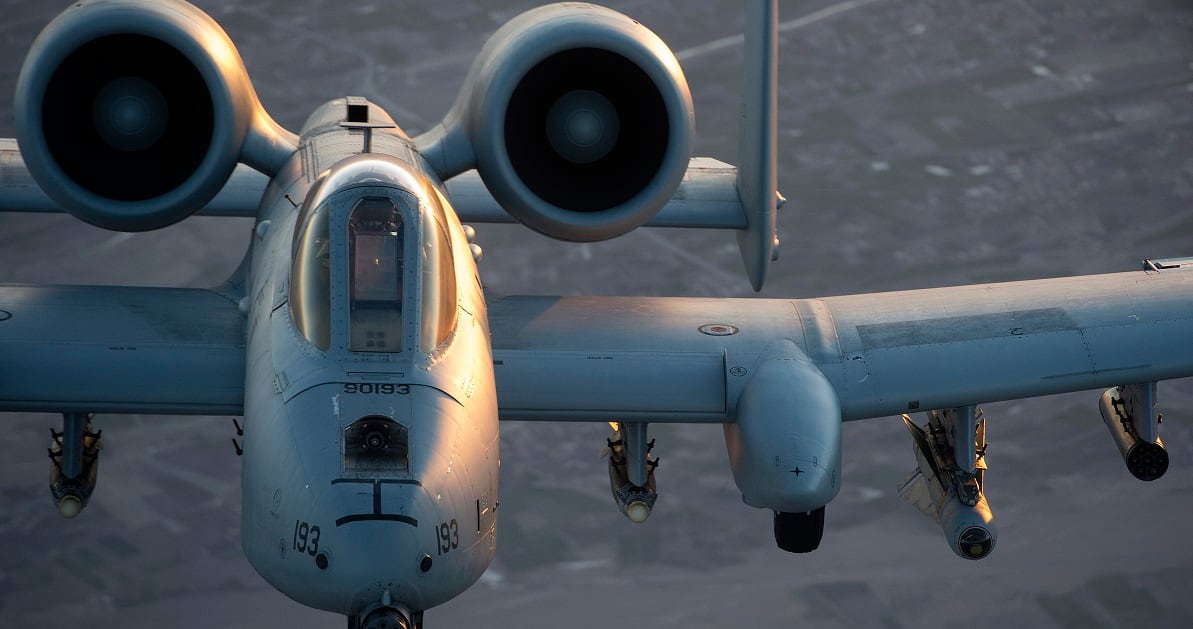U.S. operations in Afghanistan, now in their 17th year, should not be seen as a permanent U.S. presence there, Defense Secretary Jim Mattis and Chairman of the Joint Chiefs Marine Corps Gen. Joseph Dunford said Tuesday.
But Mattis said he wasn’t sure U.S. forces would be gone five years from now, either.
“Would we still have troops in Afghanistan five years from now? I can’t give you the answer to that," Mattis said. “We have to wait and see what the situation is, because it’ll be situationally dependent.”
The U.S. is planning to welcome its 17th commander for Afghanistan in a change-of-command ceremony in Kabul this weekend. Army Lt. Gen. Scott Miller will assume command from outgoing Army Gen. John Nicholson, who has led the effort in Afghanistan since spring 2016.
RELATED

Like Nicholson, Miller will be charged with overseeing the approximately 23,000 U.S. and NATO forces now operating in Afghanistan, and their now more than a decade-long mission to stabilize the country, build up its security forces and challenge cyclical increases in Taliban offensives.
Of those 23,000 forces, about 14,000 are American. About half support the NATO train and advise mission under Resolute Support, and another approximately 7,000 U.S. forces are operating under Freedom’s Sentinel, operations to counter Islamic State and other militant groups that have taken root there. Congress has marked $46.3 billion in the 2019 defense bill to pay for the upcoming year’s operations.
“We have permanent interests in South Asia, diplomatic interests and security interests,” Dunford told reporters at a joint press briefing at the Pentagon. “And we’re going to maintain a presence to have influence in that region.”
Miller’s responsibility as head of the U.S. and NATO forces there is to assist Afghan forces in applying pressure to Taliban positions throughout the country, to continue to train and equip the Afghan military and its police forces, and to try to get Afghanistan to the point where the Taliban agree to a negotiated peace.
Since the U.S. first responded to the Sept. 11, 2001, attacks by launching operations in Afghanistan in October 2001, almost 900,000 individual soldiers, airmen, sailors, Marines or Coast Guard have deployed to Afghanistan and filled 1.2 million tours there, according to the Congressional Research Service. The U.S. has spent more than $1 trillion since 2001 on combat operations, Afghanistan reconstruction, aid and training, the agency has reported.
RELATED

At the Tuesday press conference, Military Times asked: Is it now time to call the U.S. forces there what they appear to be, a permanent presence?
Mattis, who was a Marine Corps brigadier general leading the 15th Marine Expeditionary Unit in 2001 in Afghanistan, had a pointed response: “As far as a permanent U.S. presence, No. 1, there are 39 nations there supporting the U.N.-recognized government; it’s not a U.S. presence alone, and it shouldn’t be implied that way."
But the core mission, he said, was to defend American interests.
“We are there in order to ensure that America’s security — and just think back to 9/11 and this building — that America’s security is not threatened out of that location [again.] That involves the Afghan people being in control of their own future. This is why we talked about an Afghan-led, Afghan-owned reconciliation process. And we believe that the best way to get there is to ensure Taliban recognizes they can’t win on the battlefield, they must negotiate.”
Dunford said as conditions on the ground change, the composition of U.S. personnel assigned there will evolve, but not go away.
“The diplomatic presence, the security presence, and the form of that presence is going to change over time,” Dunford said. “As an example, just a few years ago, we had over 100,000 U.S. forces in Afghanistan and today we have about 14,000. So there will be a permanent diplomatic mission in Afghanistan. There’ll be permanent diplomatic presence across South Asia, but I certainly don’t expect that the current forces that we have in Afghanistan represents an enduring large military commitment.”
The comment comes at a time when the Pentagon’s current strategy for Afghanistan faces its one-year anniversary and greater scrutiny by the White House, which had been initially reluctant to extend U.S. operations there once President Donald Trump took office. Mattis said the military remains committed.
“We’re going to continue to work this,” Mattis said. “We think there are positive reasons to stick with the strategy. And we are going to drive this to a negotiated settlement, is our goal. That remains the same.”
Tara Copp is a Pentagon correspondent for the Associated Press. She was previously Pentagon bureau chief for Sightline Media Group.



